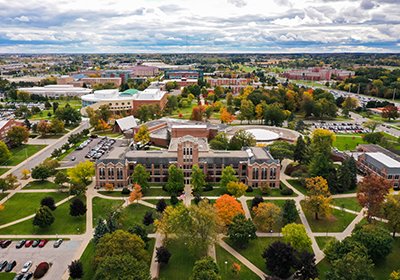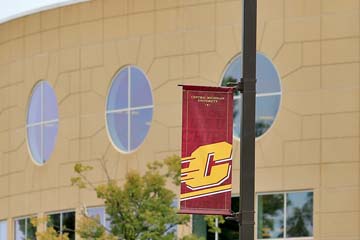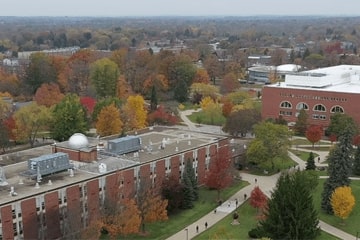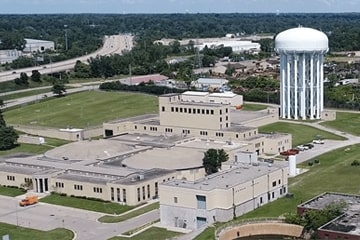COVID-19 surveillance testing to begin at CMU
Volunteers are needed to gauge virus presence on campus
As a next step in its efforts to slow the spread of COVID-19 within the campus community, Central Michigan University soon will launch a surveillance testing program. For this endeavor, the university seeks asymptomatic students, faculty and staff on the Mount Pleasant campus to participate.
In pooled testing, samples from multiple people are combined before being tested for the virus. If the pooled sample returns a positive result, each individual sample is then tested separately to determine which individual or individuals are infected. CMU is following guidelines from the U.S. Centers for Disease Control and Prevention in reporting pooled sampling procedures.
"The goal of surveillance testing for the university is to find out how widespread asymptomatic COVID-19 might be within the campus community," said Dr. Beth Bailey, professor and director of Health Services Research at the CMU College of Medicine. "This will allow us to respond quickly to pockets of outbreak, with the goal of enabling CMU to remain open for in-person instruction."
Bailey said the goal is to test approximately 5% of the campus starting Tuesday, Sept. 22, and continue testing for at least four weeks.
How to volunteer for surveillance testing
Students, faculty and staff who would like to volunteer to participate in testing must regularly come to the Mount Pleasant campus and cannot be experiencing symptoms of the virus. Volunteers are required to sign up for a surveillance testing appointment Testing will take place on the lower level of Foust Hall, room 28A.
Those ineligible to volunteer for testing include individuals who have had close contact with someone who tested positive for COVID-19, tested positive at any time for COVID-19, or do not regularly come to the Mount Pleasant campus.
Within 48 hours of the test, volunteers will be contacted by testing center staff with the results. Individuals who test positive will receive additional instructions, which may include isolation and additional testing. Those who test negative can volunteer to be tested again in 10-14 days by scheduling in advance.
The university will use a molecular nasopharyngeal test, which involves inserting a swab into the nose to collect a sample of the fluid in the back of the nasal cavity. Administration of the swab generally takes less than one minute.
"Detection of SARS-CoV2, the virus responsible for COVID-19, using nasopharyngeal swabs as specimens will provide more effective and accurate results," said Dr. Ziad Daoud, director for clinical microbiology and infection prevention at Michigan Health Clinics and a community educator faculty at CMU. "It is more sensitive than using saliva."
Pool testing allows CMU to monitor and respond to virus trends and to quickly screen for individuals who are asymptomatic but infected. This approach has been used by many large educational institutions across the country.
"People who are asymptomatic can still spread the disease," said Dr. Sethu Reddy, professor and chair of medicine at the College of Medicine. "Surveillance testing is important to take the pulse of what's happening at CMU from week to week."




